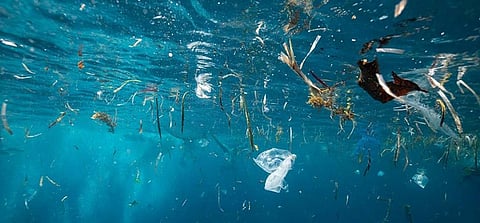

The famous Silver Beach in Cuddalore, Tamil Nadu was found to have a higher amount of coloured plastic particles, compared to fragmented and irregular-shaped plastic particles in a recent study by Periyar University in Salem, Tamil Nadu and the National Centre for Polar and Ocean Research (NCPOR) in Vasco Da Gama, Goa.
Untreated urban sewage, tourism and fishing activities were the sources of the plastic debris while storm-water runoff played a significant role in the transportation of plastic debris through the Gadilam river and wave-induced deposition through high tides, the study further noted.
Effective remediation could be possible through policy formulation to minimise plastic use, reducing the use of single-use plastics and their proper disposal, the study suggested. It emphasised the need for future assessment of microplastics on ecologically-sensitive organisms around the study area.
In the last 70 years, there has been a two hundred-fold increase in the production of virgin plastics, of which only a small portion is recycled and about a third of all plastic wastes end up in nature. Worldwide, the amount of plastic trash that flows into the ocean every year is expected to nearly triple by 2040 to 29 million metric tons.
It has been observed that plastic pollution gets aggravated due to the passage of persistent chemicals like pesticide Dichlorodiphenyltrichloroethane and toxic Polychlorinated Biphenyls, making them more concentrated when they come into contact with marine life.
When microplastics get abundant in a polluted area, owing to their greater surface to volume ratio and their hydrophobic nature, they get easily associated with other organic and metal pollutants on the ocean surface, near the mouths of rivers, coasts and even in deep-sea sediments.
As a result of this, there is an increased level of pollution spreading to all the areas of the ocean. The entire marine food web succumbs to this due to the ingestion of these pollutants by marine organisms and even poses a great threat to human health.
The study was led by NS Magesh, scientist at NCPOR. The research team comprised of A Vidyasakar, V Arun Bharathi and K Prabha of Periyar University PG Extension Centre, Dharmapuri, S Krishnakumar, K Kasilingam and K Neelavannan of the University of Madras, Guindy Campus, Chennai and SG Prince of the University of Kerala, Kariavattom Campus, Thiruvananthapuram. The research paper is published in the Marine Pollution Bulletin. (India Science Wire)